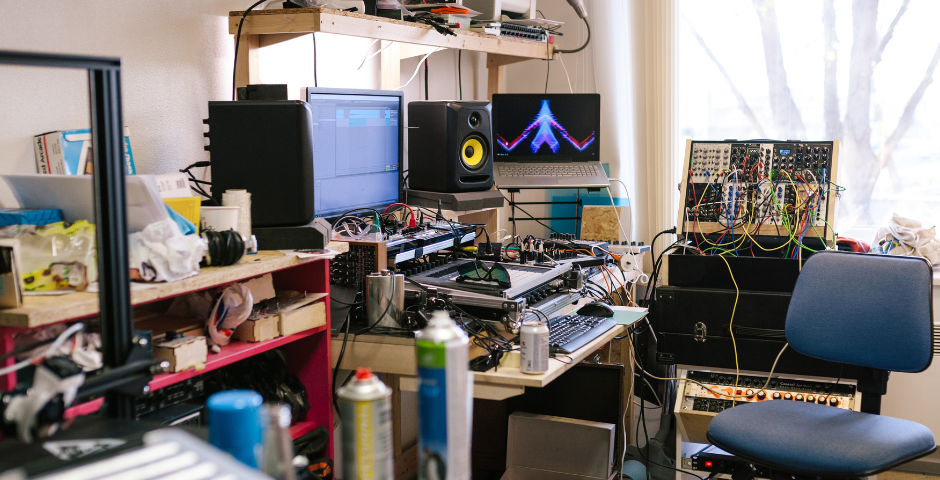Music recording and production are not as difficult as they may seem. It is possible to get a great-sounding recording in your home studio using only the equipment you already have. And, you don’t have to be a professional musician to do so. This article will give you step-by-step instructions on how to set up a home recording studio.
Setting Up a Studio at Home
A recording studio is the heart of the music industry. If a song sounds great but does not have the proper recording, it will never enter the charts and might never see the light of day. Many musicians and music professionals have started to use home recording studios to record their songs. The availability of prefab sheds for sale has made it easy for early musicians to set up their studios in their backyards. As a result, a home recording studio is not just a place to record music but also a place to practice and develop skills in music production.
If you’re an aspiring musician or music producer, you may have considered setting up a home studio in order to record your Music. Maybe you’ve been inspired by a particular artist or had an idea for a song you’ve been wanting to record. Or perhaps you want to be able to create music whenever you want to, without having to worry about going to a professional studio. Whatever the reason, setting up a home studio is a great idea, and here’s how to get started!
But before you make a move, it might be important to make sure your house does not have a rat population. You don’t want rats cutting your electrical wires which could cause damage to your equipment. If you do have such issues, you can contact a local pest control service ( look up https://www.pestcontrolexperts.com/local/idaho/ in case you require pest removal) that can eliminate pests like rats from your home. Having said that, let’s get started with setting up a studio at home.
Don’t Forget this Studio Equipment.
Here is the following equipment that your home studio should have:
• Studio monitors – Every musician needs a good set of monitors. It is not the same thing as a pair of headphones, which are for listening to music. A monitor is a tool for tracking the sound of your music and for mixing it with other instruments. It’s time to get the “real talk” on studio monitors. Unfortunately, it’s not an easy conversation to have. The “one size fits all” ideal of the high-end studio monitor that every musician should own is just plain wrong. Instead, you should have a range of monitors to cover every possible situation you might encounter as a producer or recording engineer. In order to get the most out of your studio, you need to be familiar with how to set up your studio monitors.
• MIDI keyboard – is the hardware that you need to set up your home studio. It includes one or more instruments and often controls the performance of other instruments in the setup. It also enables you to use software synthesizers and effects in real-time. When you are recording and mixing your music, a keyboard is the only thing that will be needed to do. This is because keyboards have more inputs as compared to controllers. All you have to do is make sure that you can record your tracks with your computer.
• Audio interface – A simple but essential piece of equipment you need to set up in your home studio. This is because audio interfaces are computer peripheral devices that allow you to connect your microphone to your computer.
• Digital Audio Workstation (DAW) – is an industry term for software programs that provide a means of recording, editing, mixing, and printing audio in a studio. It enables you to record, mix and master your own recordings is a sure-fire way to become the independent artist you have always dreamed of becoming. Beginners seeking to start their careers as music producers, songwriters, singers, or musicians should consider setting up a home studio.
• Computer – while a PC or Mac will get you up and running quickly, these machines will only allow you to produce the low-level sounds that will form the foundation of your recordings. Professional-grade audio recording software like Pro Tools and Logic is far more powerful. It includes features like studio effects, virtual instruments, and automation that will help you create some truly awesome music.
• Microphone – if you want your audio to sound professional, you need to invest in a good microphone. But, if you’re like most people, you’re probably stuck between a desire to cut some corners and the desire to create high-quality recordings.
• Headphones – are a must-have for any studio and perhaps the most important piece of equipment. Whether you’re recording music, watching videos, or editing audio, your headphones will be what you rely on to get the job done.
Setting up a home recording studio is a great way to get into the music industry, but it can be a little daunting if you’re not a savvy gearhead. If you want to sound like a pro, you’ll need to get yourself some proper recording equipment. With a little knowledge and a few killer plugins, you can even create professional-quality music without breaking the bank.
